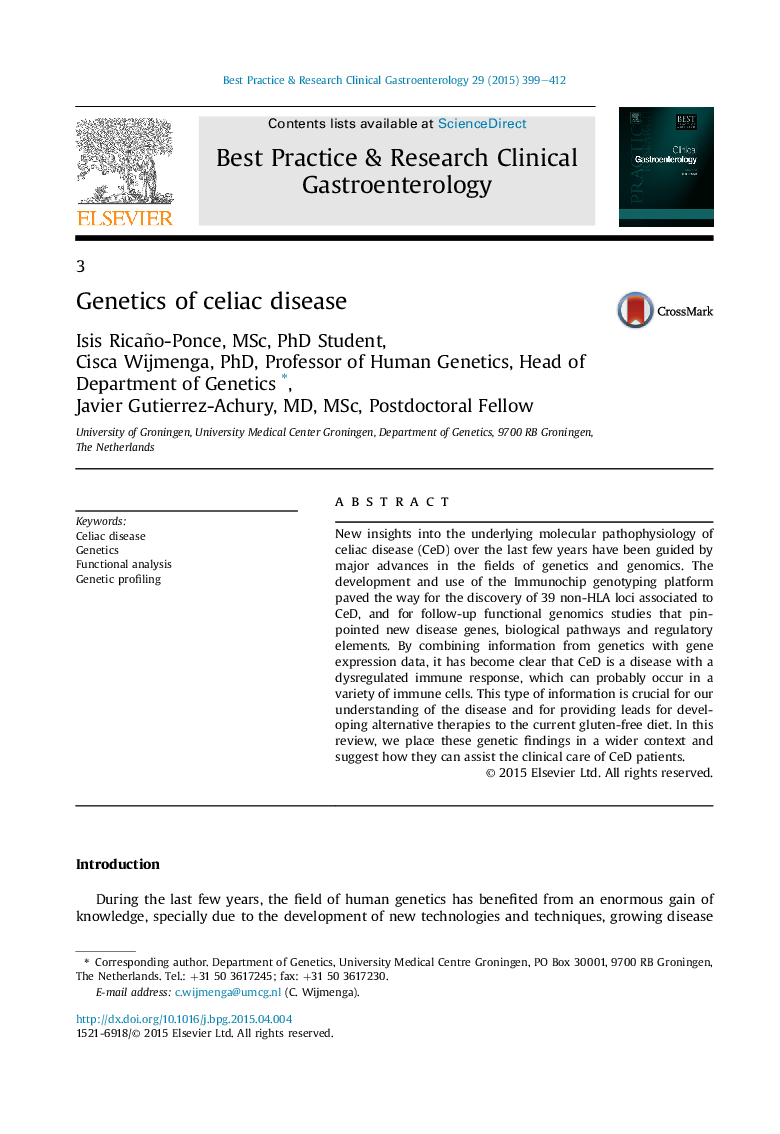| Article ID | Journal | Published Year | Pages | File Type |
|---|---|---|---|---|
| 3254233 | Best Practice & Research Clinical Gastroenterology | 2015 | 14 Pages |
New insights into the underlying molecular pathophysiology of celiac disease (CeD) over the last few years have been guided by major advances in the fields of genetics and genomics. The development and use of the Immunochip genotyping platform paved the way for the discovery of 39 non-HLA loci associated to CeD, and for follow-up functional genomics studies that pinpointed new disease genes, biological pathways and regulatory elements. By combining information from genetics with gene expression data, it has become clear that CeD is a disease with a dysregulated immune response, which can probably occur in a variety of immune cells. This type of information is crucial for our understanding of the disease and for providing leads for developing alternative therapies to the current gluten-free diet. In this review, we place these genetic findings in a wider context and suggest how they can assist the clinical care of CeD patients.
